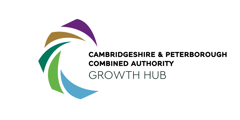Getting your name out there in your sector is key to driving sales, whether you're just starting or growing your business.
Here are some tips on the key ways to start effectively marketing your business from the very beginning.
Business name: don’t underestimate the power of the name.
Choosing the right name from the beginning is really important: it's much harder to change your name when you've become established.
Things to try:
Your own name
Does your name already have a great reputation? This would usually be this case for professional or trades- e.g. Milly Evans Accounting or Dave Downing Decorating. But may not be ideal if you want to expand into new areas, or enter a different market.
A fictitious or combination of words to make a name
- Do a brainstorm of names and words that appeal to you. Does your name tell potential customers what you do?
- Once you have a short-list, ask a diverse range of people what they think. People will often make different or unexpected associations with words, especially in other languages and cultures It’s better to know this before you register your company name.
- If your short-list is still looking good, your next step is to check Companies House, and see if your web domain is free.
- Even if you aren’t thinking of building a website yet, securing and registering your preferred web addresses is a prudent thing to do, as you can still set up a professional email address using the domain registration provider e.g. dave@downingdecorating.co.uk.
Branding and Logos
It’s important that in the early stages of your business, you only invest in what you actually need. It’s up to you as to whether you choose to employ a designer or a design agency to create a logo for you. Remember that your business’s logo’s function is not merely to be a decorative part of your business card or email signature, but to tell the story of who your business is, what it stands for, and what it does when you’re not there to explain it yourself.
When briefing a designer, be clear about what you want and what you want to use it on. Give them key words that you’d like people to think about what you do or could do for them.
Here are some questions to help get you thinking in the right way. The answers will help the designer produce the right design for your business:
- What sort of business sector are we in? e.g. construction, finance, business consultancy, engineering, real estate, event catering
- What sort of first impression do we want to give people about what we’re like to work with? e.g. friendly, fun, professional, creative, reliable, trustworthy, safe, conservative
- What is it we actually do/produce? e.g. mobile app design, life coaching for over 55s, event planning for weddings, physical therapy for post-surgery patients, construction procurement advice for developers
- Is our geographic location or the areas we can service/deliver to important for people to know? e.g. East of England, Peterborough, right across the EU, worldwide, EMEA region
- Are there any particular colours you like/dislike? Are there any particular colours strongly associated with your industry sector? Do you want to embrace or avoid them?
Business Cards
Even if you don’t have a logo or ‘look’ in the beginning for your business, it is important to have a business card. If you’re not yet in a position to have a logo or business card designed by a professional, there are many low-cost options online to have business cards made using a template available on the website. This can be a good interim solution while you are setting up but remember you get what you pay for.
It's a good idea to make sure that you have a fully populated LinkedIn profile, for you and for your business. LinkedIn is a social networking platform often described as ‘Facebook for business’. Registration is free and a common way for businesses to ‘research’ one another. This is particularly important if you are trading in a B2B sector or with business customers. It’s also valuable for networking with others in your sector or potential customers.
You can find more information about developing your marketing further here.
